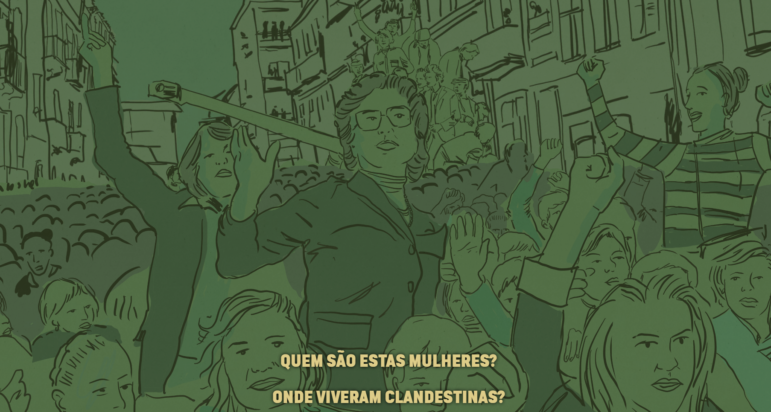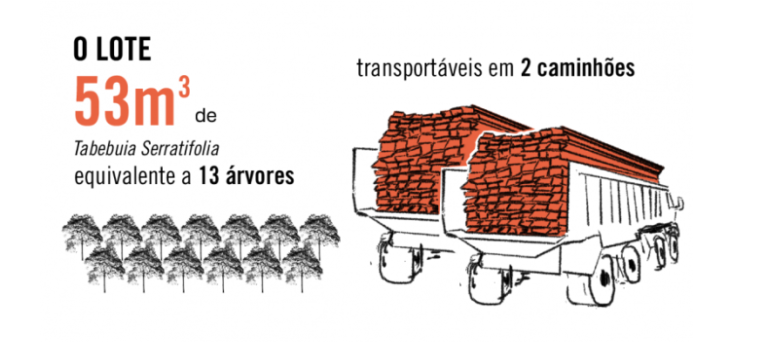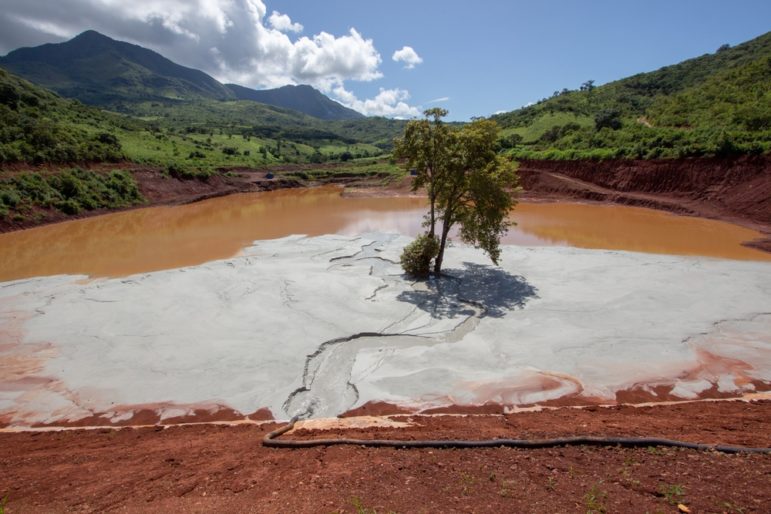
Investigative reports that overthrew ministers, that trended on Twitter for weeks, took almost a year to be produced, or sought to repair mistakes in history: there was no lack of examples of good investigative journalism in Portuguese-speaking countries in 2022. There was also no shortage of reasons for investigations.
In Brazil, President Jair Bolsonaro’s final year in office was marked by revelations and controversies surrounding the politician’s family, supporters, and allies. These included the arrest of a government minister, criminal investigations of many others, and several suspicious real estate negotiations. A full plate for Brazilian investigative journalism.
Bolsonoro didn’t make it easy for the press to investigate his government. Along with each report came a slew of attacks on journalists and the media. The hostile climate lasted throughout the year. According to the Brazilian Association of Investigative Journalism (Abraji), 2022 saw an 11% increase in attacks against media professionals. The year was also marked by the murder of British journalist Dom Phillips (alongside Indigenous expert Bruno Pereira) while reporting in the Amazon. Given this context, Brazil ranked 110th out of 180 (between Zambia and Mali) in the 2022 World Press Freedom Index by Reporters Without Borders.
A little further down the World Press Freedom Index ranking, in 116th position, sits Mozambique, where a significant number of media outlets are directly or indirectly controlled by the authorities. Journalists in the African country are frequently intimidated and threatened not to report on sensitive topics.
Portugal, on the other hand, ranks 7th best in the world, according to Reporters Without Borders. But this doesn’t prevent journalists in the country from being attacked. According to RSF, journalists were constantly threatened and insulted by supporters of Portugal’s far-right Chega party while covering that country’s recent elections.
Despite all the challenges, journalism in Portuguese endures. For this Editor’s Pick round-up, we selected pieces that stood out for their innovative format, their reach and impact, the persistence of reporters following the same topic for a long time, and the courage to report on difficult topics.
Bolsonaro Clan’s Cash-Fueled Land Buying Spree (Brazil)
For seven months, reporters Juliana Dal Piva and Thiago Herdy, from the news site of internet giant UOL, pored over the real estate assets acquired by the family of former Brazilian president Jair Bolsonaro since he began his political career in 1990. They discovered that at least 51 of the 107 properties bought by the president or his extended family were paid for fully or partially with cash, purchases that add up to the equivalent to R$ 25.6 million in current values (approximately US$4.7 million).
In another companion report, UOL also pointed out that at least 25 of the Bolsonaro clan’s 107 property purchases were later investigated by the Brazilian justice system. These deals were not necessarily made with cash, but were probed as examples of possible money laundering linked to alleged “rachadinha” schemes (illegal appropriation of salaries of cabinet employees) in which two of Bolsonaro’s sons and his second ex-wife have been under investigation. All three denied the allegations.
After publication, the two reports were taken down by the courts, at the request of the eldest son of the former president, Senator Flávio Bolsonaro. UOL classified the act as censorship and appealed the decision. The following day, they were republished by the Federal Supreme Court. In the following weeks, after complaints from Bolsonaro himself and his supporters, the website published another report, detailing the evidence of cash in each of the 51 properties.
The Woman from the Abandoned House (Brazil)

Image: Screenshot, The Woman from the Abandoned House
An abandoned mansion in one of the richest neighborhoods of the city of São Paulo with huge holes in the roof and no sewer, and a resident who only leaves the house wearing white ointment on her face and introduces herself under a false name — these elements aroused the curiosity of reporter Chico Felitti, who had just moved to the region and decided to try to understand what led to this situation. But what could have been just neighborhood gossip turned into a criminal investigation.
In the podcast The Woman from the Abandoned House, which soon went viral, Felitti recounted the story of a millionaire from a traditional family in São Paulo. She was accused, in 2000, of keeping a maid in conditions akin to slavery for 20 years in the United States, while her husband, a naturalized American, was sentenced to six-and-a-half years in prison and had to pay the maid compensation. Only after all this did the woman flee to Brazil, settling in the family mansion.
The Women that Made a Revolution (Portugal)

Illustration: Screenshot, Divergente
Divergente is a digital narrative journalism magazine created in 2014, in Portugal, focused on in-depth and long-term investigations of topics of public interest that tend to be underrepresented in the media. In this piece, the magazine told the story of two former female militants of the Portuguese Communist Party (PCP) and investigated the women who were in opposition to the Salazarist dictatorship (1933-1974). It retraced their secret paths and mapped the many homes and names they used, to show the important roles these women played in this fight.
Without a list of names and houses on which to base her report, reporter Rafaela Cortez consulted documents compiled by the International and State Defense Police about these women, as well as interviews and books. She also interviewed other militants who participated in the resistance in Portugal. There is also an English version of the story as well.
How Religious Pastors Secretly Control the Ministry of Education’s Budget and Agenda (Brazil)

Image: Screenshot, Estadao
In this series of reports published in 2022, the newspaper O Estado de São Paulo (Estadão) reported that an alleged influence peddling scheme took place within Brazil’s Ministry of Education. Estadão’s reporting claimed that the agency’s top minister was effectively under the control of two religious pastors who were close to the family of then-President Bolsonaro and who had no ties to the education sector or public offices.
The two pastors allegedly sought to steer education funds and resources to certain municipalities close to their group, or from which they charged bribes. According to the mayors who denounced the scheme, bribes were even asked for in gold and hidden inside tires of vehicles. In leaked audio, the now-former Minister of Education was heard prioritizing funds for the mayors hand-picked by the pastors. In June 2022, the Federal Police arrested the former education minister and the two pastors, releasing them the next day. They are now being investigated, but each of them has denied the charges.
The Connection (Brazil)

Image: Screenshot
Over the course of a year, reporters Allan de Abreu and Luiz Fernando Toledo reconstructed the route of a batch of yellow ipê wood illegally extracted from the Brazilian state of Pará to a store in New York. In the article published in Piauí magazine, in partnership with the Organized Crime and Corruption Reporting Project (OCCRP) and the Center for Climate Crime Analysis (CCCA), they revealed a series of irregularities and corrupt practices along the route that helped to “launder” the endangered wood.
The movement of the ipê batch also raised suspicions among Brazilian customs officials, the reporters found, but a series of decisions by the then-Minister of the Environment undermined any chance of investigating the sale. That same minister had already faced scrutiny by the Federal Police for facilitating the international smuggling of timber from the Amazon. Shortly thereafter, he resigned. This story can be read in English as well.
iFood’s Hidden Propaganda Machine (Brazil)

Illustration: Screenshot, Agência Pública
In Brazil, iFood has been the most popular food delivery app for many years. It is also responsible for a massive increase in couriers, many of whom claimed they have to work more than 10 hours a day, seven days a week. When these couriers recently planned a strike to protest their working conditions, iFood reportedly orchestrated an elaborate counter-campaign through advertising agencies.
The story was revealed by GIJN member Agência Pública, which had gained access to a trove of materials related to the agencies’ campaigns, such as reports, posting schedules, talking points, videos, minutes of the agency’s internal meetings, and even messages between employees. When contacted, both the agencies and iFood itself denied the information and stated that the relationship between them was just to carry out opinion research and monitor posts on social networks. The report was one of the finalists for COLPIN’s Javier Valdez award.
One Mine’s Poisoned Gift (Mozambique)

A tailings dam built to contain permanently byproducts of gold mining. Image: Shutterstock
Fifteen years ago, when the Mozambican government signed a contract with a Brazilian mining company for the creation of the Moatize Coal Mine in Tete province, the expectation was that coal would bring financial benefits and progress to the country. But the reality has been very different. Sold last year to an Indian conglomerate for US$270 million, the mine has had an endless list of problems, as detailed by GIJN’s Mozambican member, the Center for Investigative Journalism.
This investigation was produced with the support of another GIJN member, Information for Development Trust, and conducted in partnership with the Mozambican NGO Justiça Ambiental. The team presented testimony from victims of the mining company’s actions in Moatize and reported environmental and public health problems in the area affected by mining. Among these are a permanent cloud of dust, which causes adverse health effects in the local population, and a widespread lack of water, since much of the flow of local rivers has been diverted to the mine or silted up. In addition, many nearby buildings suffer from cracks and other structural problems — some have even collapsed — possibly related to ongoing explosions at the mine.
‘Could You Bear to Keep it a Little Longer?’ (Brazil)

The Intercept Brazil. Image: Screenshot
A pre-teen child, pregnant after being the victim of a rape, sits before a judge who decides whether or not the young girl can get an abortion. The procedure is typically illegal in Brazil, but it is allowed by law in cases of sexual violence. At no time, however, does the judge or the prosecutor tell the girl about her right to an abortion.
The videos of this hearing were supposed to remain secret, but were instead sent to The Intercept Brasil by an anonymous source. According to the reporting, in collaboration with Portal Catarinas, the video documented a pattern of misconduct by authorities, who misinform or embarrass the victims of sexual abuse.
After the disclosure of the investigation, which quickly gained attention on social media, the young girl’s case galvanized the country. The judge ended up being removed from the case — after having previously received a promotion — and was transferred to another location. The child was ultimately able to undergo an abortion.
Additional Resources
Editor’s Pick: 2022’s Best Investigative Stories from Latin America
Latin America’s Leading Investigative Reporters Take Their Stories to Rio
My Favorite Tools: How Rafael Soares Investigates Police Killings in Rio
 Ana Beatriz Assam is GIJN’s Portuguese editor and a Brazilian freelance journalist. She worked for the newspaper O Estado de São Paulo as a freelancer, mainly covering stories with data journalism in the politics section. She has also worked with the Brazilian Association of Investigative Journalism (Abraji) moderating journalism courses.
Ana Beatriz Assam is GIJN’s Portuguese editor and a Brazilian freelance journalist. She worked for the newspaper O Estado de São Paulo as a freelancer, mainly covering stories with data journalism in the politics section. She has also worked with the Brazilian Association of Investigative Journalism (Abraji) moderating journalism courses.
